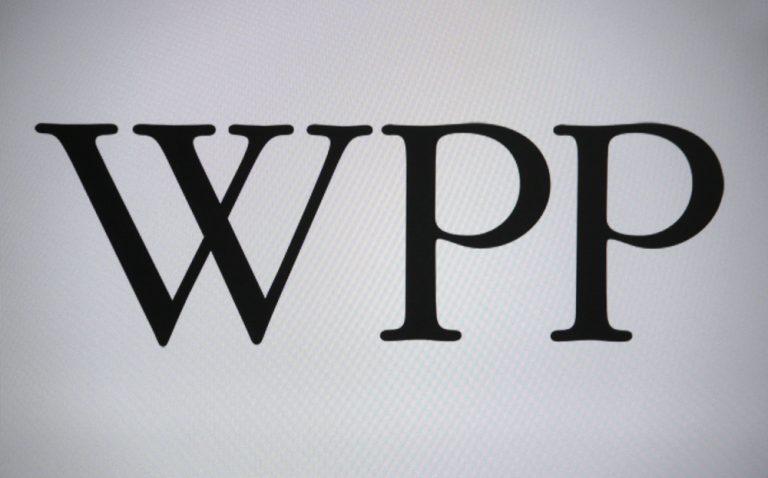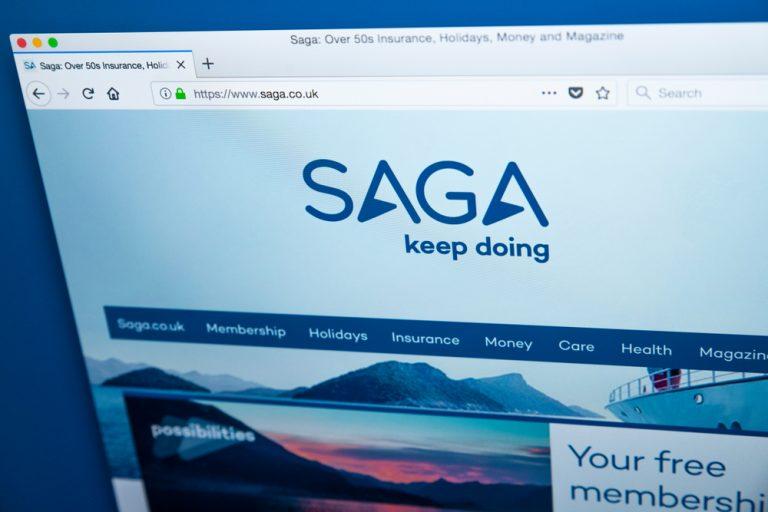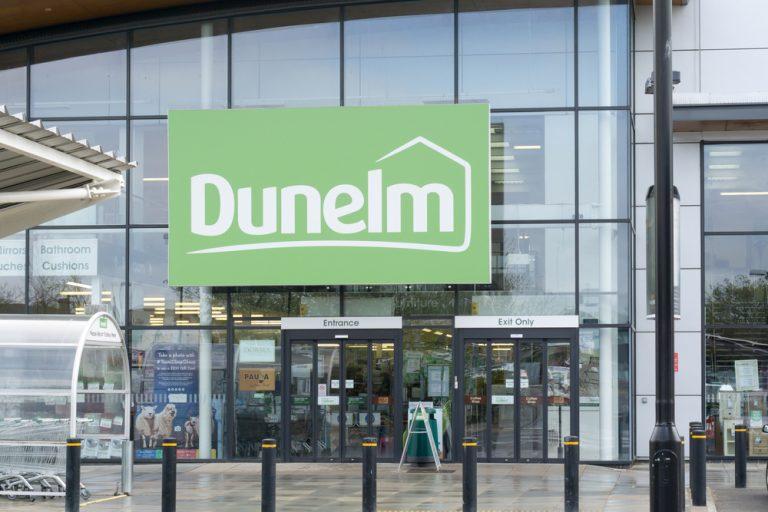Sir Martin Sorrell steps down from WPP after misconduct allegations
Shares in advertising agency WPP (LON:WPP) sunk over 5 percent at market open on Monday, after its chief executive announced his resignation over misconduct allegations.
The group confirmed that Sir Martin Sorrell had chosen to step down in a statement originally released on Saturday, less than a week after the announcement of a misconduct allegation.
WPP continued to say that the allegations of financial misconduct ‘did not involve amounts that are material’.
Sorrell, who started the world’s biggest advertising group over 30 years ago, said: “Obviously I am sad to leave WPP after 33 years. It has been a passion, focus and source of energy for so long. However, I believe it is in the best interests of the business if I step down now.”
The group’s chairman Roberto Quarta said Sorrell had been the driving force behind WPP’s expansion and thanked him for his “commitment to the business over more than three decades”.
Whilst Sorrell will not get a payoff or pension, as written in the terms of his contract, he may be set to make around £19 million from interests in WPP shares.
His remaining entitlement to long-term share bonus awards means the maximum number of shares Sir Martin may be awarded if WPP meets targets is 1.65 million, worth around £19 million.
Shares in WPP are currently trading down 4.26 percent on the news at 1,137.5 (0808GMT).
Slough: The Crossrail Effect
Since before its construction began in 2009, Crossrail has been highly anticipated as a game-changing railway line that could have a positive and significant impact on London and the South East.
Set to be fully operational by December 2019, such is Crossrail’s forecasted impact through improving access into the Capital – by bringing 1.5 million more people within a 45-minute commute, it has already had a noticeable effect on investment into locations along its route and, subsequently house prices. And not in just a handful of places, but across all towns along its route.
Indeed, since 2009 all areas located within one mile of a confirmed Crossrail station have seen house prices increase by upwards of 66%. By 2020 – one year into the line’s operation – these prices are predicted to rise by another 35%.
 One town in particular that has benefitted from being situated along this line is Slough in Berkshire. Once considered a ‘joke’ town, known best as the dreary suburb that was the setting for British sitcom ‘The Office’, Slough has not only seen an unprecedented rise in house prices – in 2017 alone house price growth reportedly hit 13.8% – but in 2017 it was named as the best place to live and work in the UK in a survey by employment website Glassdoor.
Of course, looking closely at what it is about Slough that has suddenly grown in appeal, it’s fairly easy to see. The town is home to the largest concentration of global headquarters outside of London, including 02, Telefónica, Amazon and Mars and projects totalling more than £450 million are well underway to completely transforming the town’s retail, commercial, leisure and residential offering.
The town is also already within a short commutable distance of Heathrow Airport, making overseas travel easy and providing employment for many Slough residents. Now that Crossrail is about to make access between Slough and the Capital so much quicker and easier, its appeal as an affordable alternative to life in the Capital is skyrocketing.
One town in particular that has benefitted from being situated along this line is Slough in Berkshire. Once considered a ‘joke’ town, known best as the dreary suburb that was the setting for British sitcom ‘The Office’, Slough has not only seen an unprecedented rise in house prices – in 2017 alone house price growth reportedly hit 13.8% – but in 2017 it was named as the best place to live and work in the UK in a survey by employment website Glassdoor.
Of course, looking closely at what it is about Slough that has suddenly grown in appeal, it’s fairly easy to see. The town is home to the largest concentration of global headquarters outside of London, including 02, Telefónica, Amazon and Mars and projects totalling more than £450 million are well underway to completely transforming the town’s retail, commercial, leisure and residential offering.
The town is also already within a short commutable distance of Heathrow Airport, making overseas travel easy and providing employment for many Slough residents. Now that Crossrail is about to make access between Slough and the Capital so much quicker and easier, its appeal as an affordable alternative to life in the Capital is skyrocketing.
 This all bodes well for property investors looking for opportunities outside of London that are not only more affordable but offer serious potential for high yields and capital growth far beyond Crossrail.
Leading UK property developer SevenCapital is running a seminar looking at ‘the Crossrail Effect’, specifically on Slough, on Wednesday April 18th at the Hilton London Paddington. Joined by JLL Residential Research Director Neil Chegwidden, who authored JLL’s report into Crossrail’s effect on house prices along the Commuter Belt, the seminar will cover:
Crossrail’s effect on property prices and regeneration around the Commuter Belt
Which areas along the Crossrail route have become investment hotspots
Residential developments within Slough and the surrounding area
Property value forecasts
To book your free place at this seminar visit SevenCapital’s website.
For more information on SevenCapital visit www.sevencapital.com.
This all bodes well for property investors looking for opportunities outside of London that are not only more affordable but offer serious potential for high yields and capital growth far beyond Crossrail.
Leading UK property developer SevenCapital is running a seminar looking at ‘the Crossrail Effect’, specifically on Slough, on Wednesday April 18th at the Hilton London Paddington. Joined by JLL Residential Research Director Neil Chegwidden, who authored JLL’s report into Crossrail’s effect on house prices along the Commuter Belt, the seminar will cover:
Crossrail’s effect on property prices and regeneration around the Commuter Belt
Which areas along the Crossrail route have become investment hotspots
Residential developments within Slough and the surrounding area
Property value forecasts
To book your free place at this seminar visit SevenCapital’s website.
For more information on SevenCapital visit www.sevencapital.com.
 One town in particular that has benefitted from being situated along this line is Slough in Berkshire. Once considered a ‘joke’ town, known best as the dreary suburb that was the setting for British sitcom ‘The Office’, Slough has not only seen an unprecedented rise in house prices – in 2017 alone house price growth reportedly hit 13.8% – but in 2017 it was named as the best place to live and work in the UK in a survey by employment website Glassdoor.
Of course, looking closely at what it is about Slough that has suddenly grown in appeal, it’s fairly easy to see. The town is home to the largest concentration of global headquarters outside of London, including 02, Telefónica, Amazon and Mars and projects totalling more than £450 million are well underway to completely transforming the town’s retail, commercial, leisure and residential offering.
The town is also already within a short commutable distance of Heathrow Airport, making overseas travel easy and providing employment for many Slough residents. Now that Crossrail is about to make access between Slough and the Capital so much quicker and easier, its appeal as an affordable alternative to life in the Capital is skyrocketing.
One town in particular that has benefitted from being situated along this line is Slough in Berkshire. Once considered a ‘joke’ town, known best as the dreary suburb that was the setting for British sitcom ‘The Office’, Slough has not only seen an unprecedented rise in house prices – in 2017 alone house price growth reportedly hit 13.8% – but in 2017 it was named as the best place to live and work in the UK in a survey by employment website Glassdoor.
Of course, looking closely at what it is about Slough that has suddenly grown in appeal, it’s fairly easy to see. The town is home to the largest concentration of global headquarters outside of London, including 02, Telefónica, Amazon and Mars and projects totalling more than £450 million are well underway to completely transforming the town’s retail, commercial, leisure and residential offering.
The town is also already within a short commutable distance of Heathrow Airport, making overseas travel easy and providing employment for many Slough residents. Now that Crossrail is about to make access between Slough and the Capital so much quicker and easier, its appeal as an affordable alternative to life in the Capital is skyrocketing.
 This all bodes well for property investors looking for opportunities outside of London that are not only more affordable but offer serious potential for high yields and capital growth far beyond Crossrail.
Leading UK property developer SevenCapital is running a seminar looking at ‘the Crossrail Effect’, specifically on Slough, on Wednesday April 18th at the Hilton London Paddington. Joined by JLL Residential Research Director Neil Chegwidden, who authored JLL’s report into Crossrail’s effect on house prices along the Commuter Belt, the seminar will cover:
Crossrail’s effect on property prices and regeneration around the Commuter Belt
Which areas along the Crossrail route have become investment hotspots
Residential developments within Slough and the surrounding area
Property value forecasts
To book your free place at this seminar visit SevenCapital’s website.
For more information on SevenCapital visit www.sevencapital.com.
This all bodes well for property investors looking for opportunities outside of London that are not only more affordable but offer serious potential for high yields and capital growth far beyond Crossrail.
Leading UK property developer SevenCapital is running a seminar looking at ‘the Crossrail Effect’, specifically on Slough, on Wednesday April 18th at the Hilton London Paddington. Joined by JLL Residential Research Director Neil Chegwidden, who authored JLL’s report into Crossrail’s effect on house prices along the Commuter Belt, the seminar will cover:
Crossrail’s effect on property prices and regeneration around the Commuter Belt
Which areas along the Crossrail route have become investment hotspots
Residential developments within Slough and the surrounding area
Property value forecasts
To book your free place at this seminar visit SevenCapital’s website.
For more information on SevenCapital visit www.sevencapital.com. Rolls-Royce shares down slightly on further engine testing
Rolls-Royce (LON:RR) shares sunk in early trading on Friday, after warning engine customers that it would be conducting further inspections of its Trent 100 Package C series.
The further inspections are likely to cause more disruption to customers, as well as increasing cash costs for Rolls-Royce.
However, the company sought to calm investors by saying it would absorb the costs by ‘reprioritising various items of discretionary spend’.
The warning comes after previous indications from Rolls-Royce that there were reliability issues with the engines’ compressor systems.
“We sincerely regret the disruption this will cause to our customers and our team of technical experts and service engineers is working around the clock to ensure we return them to full service as soon as possible,” chief executive Warren East said.
“We will be working closely with Boeing and affected airlines to minimise disruption wherever possible.”
The company maintained its guidance for 2018 free cash flow at £450 million, give or take £100 million.
Shares in Rolls-Royce are currently trading down 1.82 percent at 865.20 (0853GMT).
Hammerson shares fall as Klepierre pulls out of further bids
Shares in property developer Hammerson (LON:HMSO) tumbled on Friday morning, after European shopping centre group Klepierre abandoned its attempts to make a deal.
Hammerson rejected another bid from rival Klepierre earlier this week, after the group made a revised bid of 635p per share, consisting of 50pc cash and 50pc in new Klépierre shares.
Hammerson, who own the Birmingham Bull Ring centre, said the deal “significantly undervalued” their company and turned it down.
On Friday morning Klepierre confirmed its decision decision to pull out of any further deal talks, ahead of its deadline on April 16, 5.00 p.m. A successful takeover of Hammerson by Klépierre would have got in the way of the £3.4bn all-share deal made earlier this year between Hammerson and Intu.
Hammerson’s share price is currently down 12.54 percent at 454.80 (0840GMT).
Sage Group shares tumble 15pc as revenue flags
Shares in software company Sage Group (LON:SGE) fell 15 percent on Friday morning, after first half revenue growth missed expectations for the six months to March.
The group downgraded its annual guidance on the back of the results, with ‘inconsistent operational execution’ leading to a revenue rise of 6.3 percent over the period, instead of the 7.4 percent growth recorded a year earlier.
The group attributed the fall to lower recurring revenue growth, as well as the loss of several contracts in its Sage’s enterprise software division.
Full-year guidance was cut to around 7 percent organic revenue growth, down from 8 percent, but operating margin guidance was maintained at 27.5 percent.
The software group were hit by weaker software subscriptions in the first half, with growth in the area falling to 25.3 percent, from 30.6 percent.
Chief executive Stephen Kelly said the group’s broad market opportunity remained unchanged.
“The revised revenue guidance targets for financial year 2018 reflect both the performance in the first half, but also our diligence in ensuring that we focus on recurring revenue to drive sustainable acceleration throughout the rest of the year as a platform into financial year 2019,” he commented.
Despite the group’s conciliatory comments investors were spooked by the news, sending shares down 15.09 percent to 570.60 (0821GMT).
London Stock Exchange confirms David Schwimmer as new chief
The London Stock Exchange named ex-Goldman Sachs banker David Schwimmer as its new CEO, after Xavier Rolet stepped down in November.
Schwimmer has spent the last 20 years with Goldman Sachs, where he was Global Head of Market Structure and Global Head of Metals and Mining in Investment Banking. He will join the group on 1 August 2018 and will be a member of the Board of Directors.
David Warren, Interim CEO and Group CFO, will continue as group CFO and a member of the Board.
“I have been impressed by its strong track record of partnering with customers to deliver innovative solutions. LSEG has multiple opportunities for further attractive growth across its market leading capital formation, information services and post trade businesses,” said Schwimmer said.
His appointment was made amongst claims that his predecessor, Rolet, was forced out by board members after a row, with the board taking a dislike to his management style.
Donald Brydon, Chairman of the London Stock Exchange Group, said he was “delighted to announce” the new appointment.
“David is a leader with great experience in the financial market infrastructure sector, which he has been closely involved in throughout his investment banking career, as well as capital markets experience in both developed and emerging markets. He is well known for his robust intellect and partnership approach with clients and colleagues alike”.
Volkswagen announce new CEO, Herbert Diess
Herbert Diess will become Volkswagen’s (ETR: VOW3) new CEO, replacing Matthias Müller who will step down immediately.
Diess will head the shakeup of the company, who are to create six new business areas and a special portfolio for China.
“My most important task will now be to join with our management team and our group workforce in consistently pursuing and pushing forward our evolution into a profitable, world-leading provider of sustainable mobility,” he said in a statement.
Diess’s new position at the group has been met with optimism by analysts.
Nord LB analyst Frank Schwope said: “Diess is a man of action. He is the most plausible choice at VW to lead the group into the next phase of its transformation.”
The new CEO will replace Müller, who did not successfully refocus the Volkswagen’s portfolio of car brands, which was a key pillar of “Strategy 2025” to transform the company after the diesel emissions scandal.
Diess, who is a former BMW AG (ETR: BMW) executive, plans major cost-cutting at the group whilst also focusing on the development of new technologies.
Sanford Bernstein analyst Max Warburton wrote: “There have been historic episodes where cost cutters have been brought in to sort out the namesake VW brand, but who then leave or are squeezed out before their work is really done.”
“Instead of being squeezed out, he has been pushed upward, and has been made CEO. It’s a sign of real change at VW.”
Volkswagen’s decision to slim down has come amid Fiat (NYSE: FCAU) and Daimler’s (ETR: DAI) move to strip off from non-core assets and cut costs.
Goldman Sachs analysts have estimated £140 billion worth of “hidden value” in the European auto sector, which can be gained through portfolio simplifications.
Uber acquires bike share startup Jump
Uber has announced plans to acquire the New York City-based e-bike startup, Jump Bikes.
The car-hailing app has not confirmed what the deal is worth but it is estimated to be $100 million in cash and stock.
Uber’s CEO Dara Khosrowshahi said in a blog post that the deal would help in his mission of “bringing together multiple modes of transportation within the Uber app—so that you can choose the fastest or most affordable way to get where you’re going, whether that’s in an Uber, on a bike, on the subway, or more.”
When completed, the deal will give Uber access to Jump’s 12,000 dockless and GPS-enabled bikes in 40 cities across six countries including China and the US.
The start-up’s CEO, Ryan Rzepecki, was initially concerned at the proposed deal and shared concerns over Uber’s recent controversies.
He wrote: “When we first began talking to Uber they were going through an extremely difficult time, with negative headlines each week and a massive change in leadership. We expected to find a toxic work environment and a broken culture.”
“Instead, everyone we met was smart, passionate, and genuinely wanted to help our team succeed. Through our collaboration we realized that we shared Uber’s vision of multi-modal mobility and had the same goal of decreasing car ownership.
“Even more importantly, we could see the shift in the company once Dara was named CEO as he began leading with humility and in a way that we felt reflected our values. It soon became clear that with such strong synergies and alignment on mission, JUMP could better accomplish its goals if it were part of Uber,” he added.
Despite concerns about the deal resulting in extreme losses for Uber, Khosrowshahi said the company were not thinking in terms of profits or IPO yet but are focusing on consumers first.
Travel business performance boosts Saga shares by 8pc
Shares at over-50s insurer Saga (LON:SAGA) soared over 8 percent at market open on Thursday, as underlying profit for the full year to January 2018 moved up 1.4 percent.
Pre-tax profit dropped significantly over the period, down 1.4 percent, but the company raised its dividend by 5.9 percent to 9p. Saga said it reflected ‘confidence in the future cash generation of the business’.
Its travel business had an extremely strong year, seeing profit growth of 36.9 percent over the period. Retail broking insurance recorded a profit of 4.3 percent.
“In a challenging market we have delivered a set of full year results which is in line with the rebased profit expectations set at the end of 2017. We have also continued to develop our strategy for long term growth.
“We have achieved a modest increase in underlying profits and have remained highly cash generative. We have increased the dividend given our confidence in the stability of our highly cash generating model”, said CEO Lance Batchelor.
Shares in Saga are currently trading up 8.12 percent at 126.50 (0847GMT).
Dunelm shares soar 7pc on quarterly revenue boost
Homeware retailer Dunelm (LON:DNLM) saw shares rise nearly 7 percent on Thursday morning, after recording a moderate rise in revenue despite a “challenging” consumer backdrop.
Total revenue for the third quarter rose by 5.1 percent to £268.2 million, with like-for-like revenue up 4.6 percent. Dunelm’s online performance remained strong, with organic growth at 35.7 percent during the three month period.
“We’ve seen a good sales performance over the quarter, with like-for-like sales of 1.2% in stores and 35.7% online, despite a challenging consumer backdrop”, said Nick Wilkinson, chief executive of Dunelm.
The results come after a warning from the company in January that weakness in the legacy Worldstores business, as well as continued investment in infrastructure, would lead to higher operating costs.
Gross margin was approximately 15 basis points lower than the comparable period previously, but the firm said it gross margni figures to improve significantly in the final quarter.
Dunelm confirmed that expectations for the full year remain unchanged, and retained its guidance that H2 margins will be broadly in line with H1 margins.
Shares in Dunelm are currently trading up 6.97 percent at 560.50 (0837GMT).










